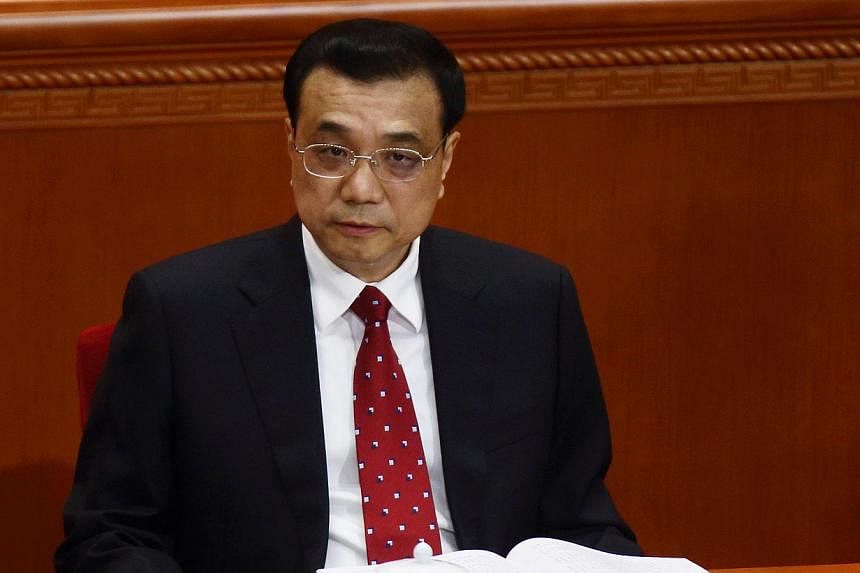BEIJING - China's National Parliament opens its annual session in Beijing on Thursday morning, with Premier Li Keqiang presenting a work report on the government's priorities this year and the keenly anticipated economic growth target for 2015.
A 7 per cent growth rate - lower than the 7.5 per cent set since 2005 - is widely forecast, reflecting the slowdown in the world's No. 2 economy and also the Chinese leadership's resolve to accept slower growth and deepen economic restructuring efforts.
The focus is thus on stimulus and reform measures that Premier Li or various government ministries might announce or hint at during the annual session of the National People's Congress (NPC).

Mr Li will also reveal the Chinese government's Budget for 2015, which could increase a defence spending spike of around 10 per cent from last year's 808.2 billion yuan (176.2 billion). While it is lower than the 12.2 per cent increase last year, the figure will continue the military Budget's double-digit growth in over two decades.
The NPC session runs almost in parallel with the yearly meeting of the Chinese People's Political Consultative Conference (CPPCC), an advisory body.
Together, the NPC and CPPCC sessions are termed "liang hui" in Mandarin - or two sessions. The CPPCC session opened on Tuesday and ends on Mar 13. The NPC session ends on Mar 15 with a press conference by Mr Li.
The NPC's nearly 3,000 delegates will review and endorse the government's work in the past and coming year, pass new laws, approve the budget, and ratify personnel changes.
Revisions to the Legislation Law are being tabled and, if passed, will empower more local governments to enact laws related to urban management.
The CPPCC's 2,200 delegates will discuss and make policy suggestions to the government on hot-button issues such as anti-corruption, environmental protection, food safety, and employment.
A key theme of the liang hui this year will be President Xi Jinping's new political slogan "Four Comprehensives" on building a moderately prosperous society, pushing reforms, deepening the rule of law and instilling discipline among Communist Party cadres.


